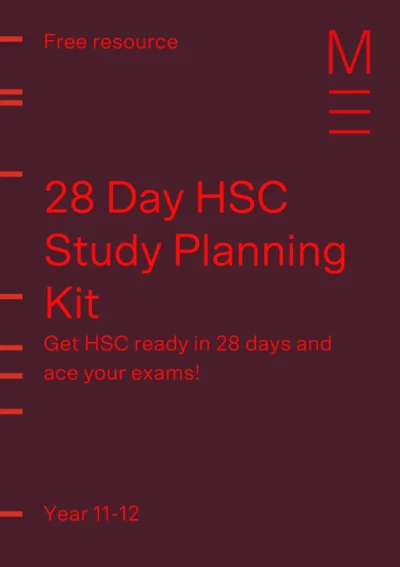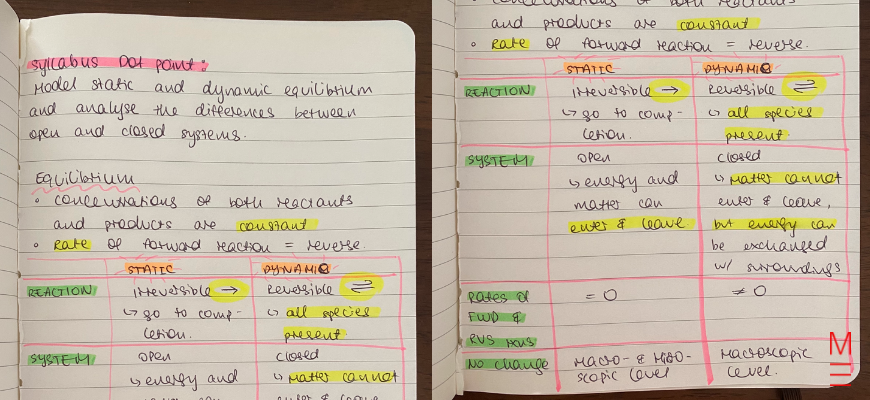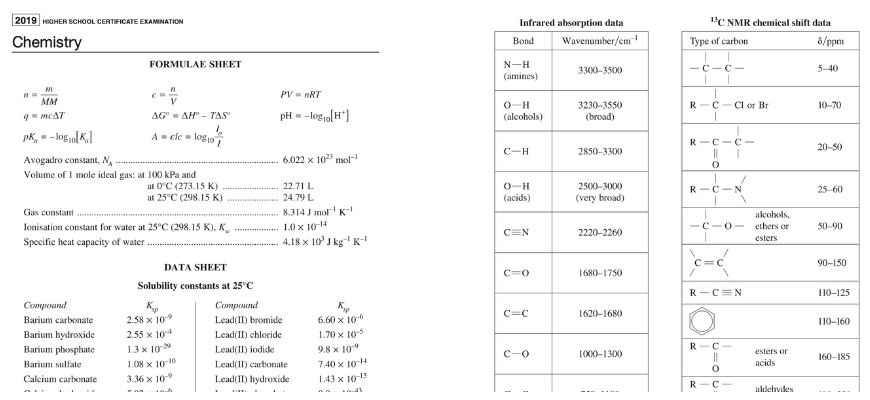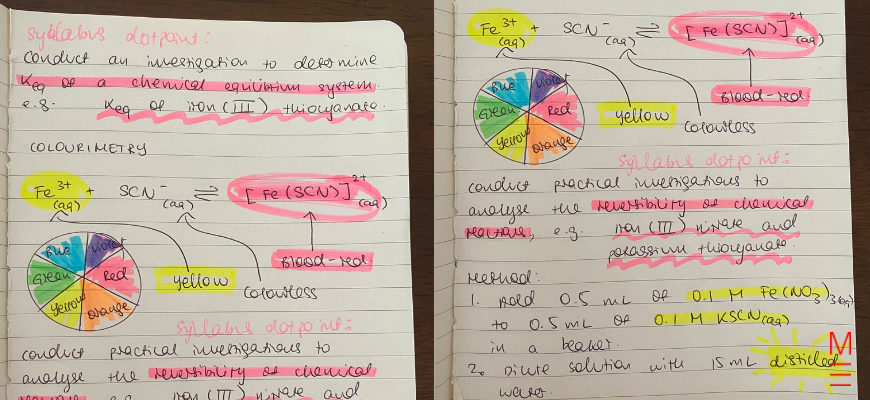Welcome to Matrix Education
To ensure we are showing you the most relevant content, please select your location below.
Select a year to see courses
Learn online or on-campus during the term or school holidays
Learn online or on-campus during the term or school holidays
Learn online or on-campus during the term or school holidays
Learn online or on-campus during the term or school holidays
Learn online or on-campus during the term or school holidays
Learn online or on-campus during the term or school holidays
Learn online or on-campus during the term or school holidays
Get HSC Trial exam ready in just a week
Get HSC exam ready in just a week
Select a year to see available courses
Science guides to help you get ahead
Science guides to help you get ahead

The final month leading up to the HSC is perhaps the most crucial part of your preparation. With the right attitude and study plan, you can make the most of your time and minimise procrastination. To help with that, we’ve put together this 28-day HSC Chemistry study plan and downloadable study planning kit. Read this and the other Guides in the series and use the planner to get your study on track to ace your HSC.
Get HSC ready in just 28 days and maximise your exam marks! Fill out your details below to get this resource emailed to you. "*" indicates required fields
Download your 28 day HSC Study Planning Kit

Download your 28 day HSC Study Planning Kit
Here is a sample calendar that you can base your studies on.
Remember, it is up to you to allocate the necessary time for Chemistry. You can choose to spend or less time than what we’ve suggested, or move some activities around. We go through how to prioritise your subjects based on your confidence level and your internal ranking in our Overview: Get HSC Ready in 28 Days.
Note: Bolded activities will take approximately 5-7 hours, whereas unbolded activities should take approximately 30 minutes. These unbolded activities are supposed to be small additional activities that will help you further develop your Chemistry skills.
| Monday | Tuesday | Wednesday | Thursday | Friday | Saturday | Sunday | |
| Week 1 | Read over the Chemistry syllabus Review notes | Review practical investigations | Familiarise yourself with the nature of the Chemistry exam Write exam notes | Target weaknesses | Review practical investigations | Target weaknesses | Rest and Relaxation |
| Week 2 | Review syllabus dot points and notes
| Quiz yourself by going through past papers Target weaknesses | Seek help on challenging questions Study with friends | Review challenging questions | R&R | ||
| Week 3 | Practise challenging questions and review | 1 x Practice paper (untimed, open-book) Mark and review answers
| 1 x Practice paper (untimed, open-book) Mark and review answers | 1 x Practice paper (untimed, open-book) Mark and review answers | Practise challenging questions and review | R&R | |
| Week 4 | 1 x Past papers (exam conditions) Review notes Mark and review answers | Practise challenging questions and mark Seek help | 1 x Past papers (exam conditions) Review notes Mark and review answers | 1 x Past papers (exam conditions) Review notes Mark and review answers | Review notes Attempt and review challenging questions | R&R |
Before we go into your 28 Day HSC Chemistry study plan, we need to do some housekeeping!
We go through these steps in detail in our Overview of the 28 Day HSC Study Planner Guide.
[InlineContentDownloadForm]
This week is all about preparing your notes, and familiarising yourself with HSC Chemistry.
It is crucial that you do this because it ensures that you don’t have any missing gaps of knowledge and that you know exactly what to expect when you enter the exam.
Next section: Revision and Quiz
NESA’s Chemistry syllabus clearly lists out what theory content, practical investigations and formulas you can be examined on.
Take a look for yourself:
By simply reading through the syllabus, you will be able to identify gaps in knowledge and revise your notes accordingly.
So, you need to:
You can find the syllabus here:
You should be adding to your Chemistry notes throughout the year.
Your notes should concisely summarise all the content mentioned under the syllabus dot points.
You might find it helpful to note down tricks that help you memorise things, easily forgettable information (eg. changing units from °C to K when substituting values into formulae) and solutions to challenging questions.
If you haven’t been writing these notes throughout the year, it’s not all over! Instead, you will need to review your class notes and write exam notes (in Step 5)
So, let’s see how we can organise and review our Chemistry notes and/or class notes:

Notice how the student lists out the syllabus dot point they are addressing, concisely summarises the content in a table and highlights key information.
It is important that you know what is included in the Chemistry exam paper and what are the rules you must follow.
Your exam should look similar to the 2020 HSC Chemistry Exam.
Papers from 2018 and earlier are based off the old syllabus, not the newest 2019 syllabus.
However, some content will still be relevant. Especially data processing questions.
So, you can still attempt past papers from 2018 and earlier, and skip over questions that aren’t tested in the new syllabus.
If you are unsure about whether a particular question is included in the new syllabus, you can ask your teachers or the Matrix Q&A Board if you are enrolled in any Matrix Chemistry course.
Start HSC Chemistry confidently
Expert teachers, comprehensive resources, one-to-one help! Learn from home with Matrix+ online.
A reference sheet containing helpful formulae and data is attached to the end of all Chemistry HSC exams. Here is a link to the exact reference sheet that you will be given in your HSC exams: NESA’s Chemistry reference sheet.
You should always take advantage of this reference sheet and use it during the exam.
It is important that you know exactly what’s included in the reference sheet so you don’t waste precious exam-time flipping through the pages of your reference sheet.
So,

Exam notes are concise notes with all the important information and common mistakes you need to watch out for.
You can use your exam notes to memorise key information and rely on them when you are working through open book past papers.
These are the notes that you would want to be reading on the morning before your exam — short and to-the-point.
If you’ve been writing simple and concise Chemistry notes throughout the year, you won’t need to do much to turn them into exam notes!
By now, you would be aware of some weaknesses and confusing areas as you went through the syllabus and your notes.
It’s crucial that you deal with these issues immediately so you have time to practice them!
Also, many Chemistry questions combine different concepts together. So, if you are lacking in one area, this may jeopardise your ability to fully answer a whole range of questions.
This is how you can identify your weaknesses:
Once you’ve figured these weaknesses, you need to:
In class, your teacher may have guided you a couple experiments which absolutely did not work out for you.
That’s okay, but now you need to review these practical investigations and make sure that you have a clear understanding of the aim, method, set-up, variables, results and conclusions drawn from it. Even though the HSC Exam is technically a written theory exam, you can be asked to explain or describe any part of a practical investigation mentioned in the syllabus.
Throughout the week, attempt to spend 10-15 minutes here and there to read over the experiment reports that are included in the syllabus.
You might find it more effective to jot down the key points and leave out things that you intuitively remember.

This week is all about consolidating your understanding and dipping your feet to test the waters!
You should have already begun memorising theory content and reviewing examples last week. Now, we are finalising this and beginning to work through past papers
It’s okay if you haven’t finished memorising all the content yet. Spend some time to get it done today.
Often, students find doing questions that involves applying content they’ve learned helps them remember the theory content. Trying to memorise your notes by simply reading them over and over again is not the only way to learn, and certainly not the most effective.
Try to do some practice questions, even if you need to refer to your notes!
Last week, you reviewed challenging questions by reading and understanding their solutions. This week, we will take this a step further.
You should:
This step is a quick test to see how well you remember the Chemistry content and your ability to apply it.
Don’t start stressing! We aren’t doing this under exam conditions.
So, to do this, you need to:
Ensure that you are always tracking your common mistakes so you can work on them!
When you continue to expose yourself to a wide variety of questions, you will find more weak areas.
Don’t neglect them. Work on them straight away!
So, continue to target these weak areas by using the methods we aforementioned:
Remember, your HSC journey is not supposed to be a lonely one! You have your friends who are on the same journey as you!
So, take advantage of this and work with your friends to improve your Chemistry marks together!
You can call or meet up with your friends and:
Teaching others is one of the best ways to learn. This is because teaching involves explaining a concept clearly and concisely to someone else . It ultimately tests your understanding of the concept, especially if you are asked to clarify further or underlying questions.
If you are struggling to explain a concept, then that means that you need to go back and review your notes.
You can extend your understanding of your content, especially when you friend asks you challenging questions.
Now that we’ve revised and targeted our weaknesses, it is time to complete some practice papers!
Next section: Revision and Past Papers
This is a rough guide of what you should aim to complete in a week:
| Chemistry Paper |
|
Feel free to do more Chemistry practice papers if you feel like you need the practice.
Exams are stressful, which is why you need to prepare yourself for them by simulating exam conditions. If you want to get a mark that truly reflects your abilities, you will need to learn to cope with exam conditions and you can do that with practice papers.
Completing past papers under exam condition will help you deal with exam stress and develop your exam-taking skills.
Some benefits of this includes:
So, let’s see what ‘exam-conditions’ mean:
If you are low on time, then you can break up some exams into 1 hour or 1.5 hour sessions. However, it’s important to complete at least 3 of them in full under strict exam conditions! This is the only way to prepare for the challenges of the actual exam.
Open book past papers are also highly beneficial to do too! Each has their own different advantages, so aim to complete a variety of the two.
Let’s see the benefits of open book exams:
So, how do we complete an open book exam?
Try to complete all the questions in your past papers. Treat this step as a learning opportunity to fine-tune and develop your Chemistry skills.
Once you’ve completed a significant amount of open book past-papers, then you can start skipping easy questions and focus on the intermediate and challenging questions.
After working through a good amount of past papers, – both under exam conditions and open book – you should start to solely focus on challenging questions. Often time, this includes writing long responses to questions worth up to 10 marks
These are usually question types that you tend to answer incorrectly, or questions that tests your most unconfident subjects.
To do this, you should:
Always remember to mark your work and seek help if you need it!
It is very important that you are continually targetting your issues and weaknesses.
If you are unable to understand the provided solution and explanation, then seek help!
Ask your friends who are confident in the topic, your school teachers and your Matrix teachers. Remember to be polite when asking.
There’s one week left before your HSC exams! We will be doing more past papers to acquaint you to a wide variety of questions and quickly revising over all your formulas, so you they are all fresh in your mind!
Even if you don’t feel 100% ready to do a practice paper under exam conditions, it’s important that you push yourself to do it! It’s all for practice after all, so don’t be stressed out by what you might score, but rather, appreciate what you might learn from this. You will be surprised how much you actually remember!
Doing past papers is great practice, but it can be very time-consuming — Chemistry exams are 3 hours long!
At the pointy end of your exam preparation, you may find that there’s not enough time to do all practice papers. So, it can be particularly time-saving to pick out challenging questions from practice papers to save you from spending hours doing the whole thing, while still ensuring that you continue to learn.
In saying that, it’s important to also develop your exam technique by doing some full practice papers. Long story short, do some full practice papers under exam conditions and pick out challenging questions from the rest!
The more you put your knowledge to the test with practice papers, the easier it will become to remember. However, there will be some small details, like examples accompanying your long response arguments, or complex concepts that you need to regular revisit in your notes to make sure your memory of it stays fresh.
Use as much time as you need to review the content in your notes. Most students find that a few hours every couple of days is enough.
You are working super hard, so it’s important to take a break sometimes! Chill out, chat to friends and family, and get out for some fresh air. Trust us, it will maximise your productivity and help you procrastinate less!
© Matrix Education and www.matrix.edu.au, 2025. Unauthorised use and/or duplication of this material without express and written permission from this site’s author and/or owner is strictly prohibited. Excerpts and links may be used, provided that full and clear credit is given to Matrix Education and www.matrix.edu.au with appropriate and specific direction to the original content.